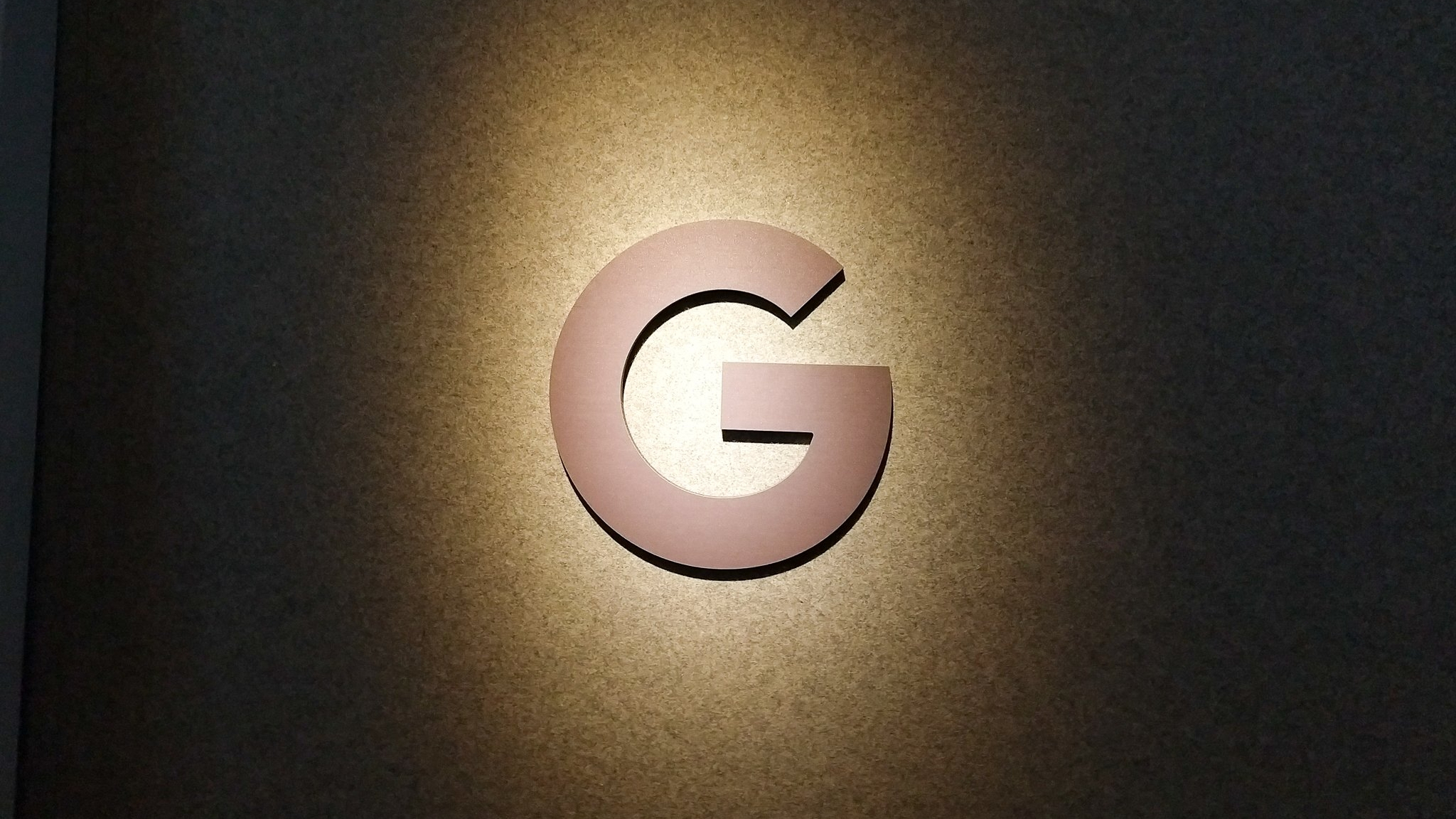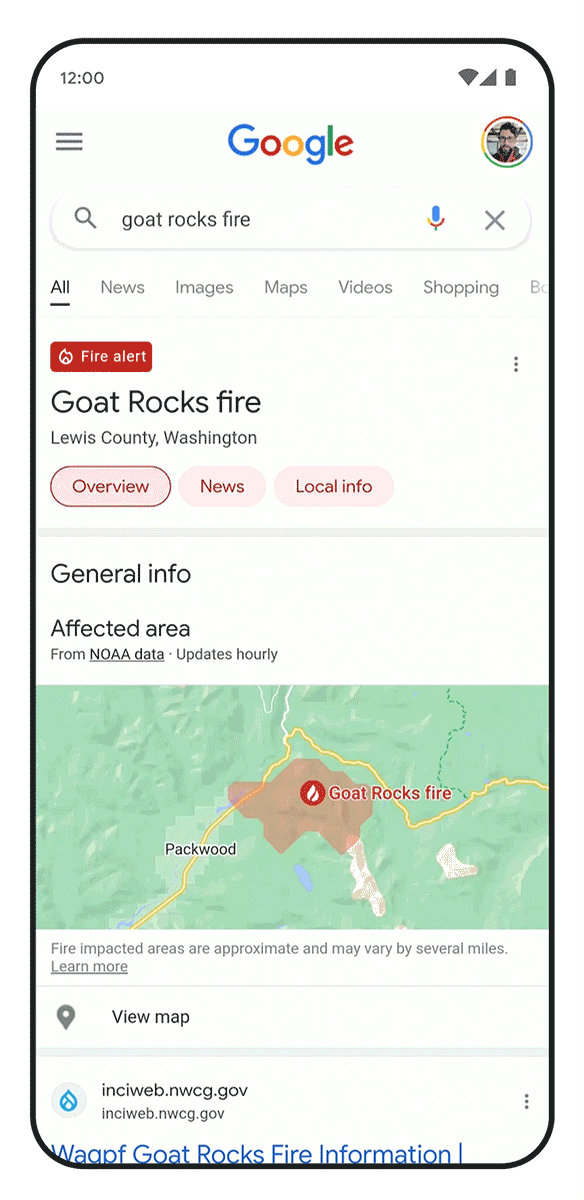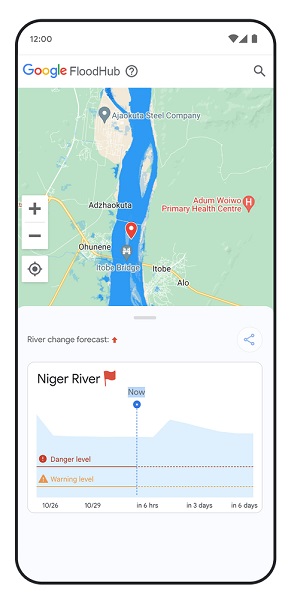Google expands flood warnings to more countries, commits to expand AI language support
The search giant intends to use AI to translate technology into many languages.

Get the latest news from Android Central, your trusted companion in the world of Android
You are now subscribed
Your newsletter sign-up was successful
What you need to know
- Google announces its set of new AI capabilities.
- The capabilities include support for more languages next to addressing climate issues.
- Google will further utilize AI in healthcare in under-resourced regions.
Google has revealed that it will soon add additional AI capabilities improvements. The leading search engine has been integrating its AI expertise into most of its products, including Pixel phones, Google Cloud, and Google Search. The latest developments include using AI to translate technology into many languages and using AI to solve problems related to climate change and human health.
In the Google Keyword post, the company announced a new "1,000 Languages Initiative" intending to develop an AI model to support most spoken languages. The new initiative aims to bring "greater inclusion to billions of people in marginalized communities all around the world." Google believes there are around 7,000 spoken languages worldwide; currently, only a few are represented on the web.
Google further acknowledges that people would find new ways to share information via modalities like images, videos, and speech. The company is bringing advancements to make its language models multimodal to make them capable of unlocking information across the above-outlined formats. The new initiative thus brings a new Universal Speech Model (USM), which Google says it has been working on for quite some time now.
The USM is said to have trained in over 400 languages, and the company plans to expand its work by partnering with communities worldwide to "source representative speech data."
For example, early last month, Google announced voice typing functionality for 9 new African languages for its Gboard. It was made possible by working closely with researchers and organizations in Africa.
Similarly, the search engine giant is reportedly collaborating with regional governments, non-governmental organizations, and academic institutions in South Asia to eventually collect representative audio samples from all of the region's dialects and languages.
Using AI to address issues related to health and climate change

Google has further announced that it has advanced its use of satellite imagery to train AI models to spot and track wildfires. The training here comprises wildfire prediction next to how it evolves and spreads in real-time.
Get the latest news from Android Central, your trusted companion in the world of Android
"We've launched this wildfire tracking system in the U.S., Canada, Mexico, and are rolling out in parts of Australia, and since July we've covered more than 30 big wildfire events in the U.S. and Canada, helping inform our users and firefighting teams with over 7 million views in Google Search and Maps."
According to Google, the AI capabilities can now be seen to forecast floods, which is considered another extreme weather pattern exacerbated by climate change. The company says it has already helped communities predict when the next flood will hit them and how deep those waters can be. The 2021 stats include 115 million flood alert notifications to 23 million people via Google Search and Maps.
Starting this week, the coverage is said to be expanding to more countries that include South America (Brazil and Colombia), Sub-Saharan Africa (Burkina Faso, Cameroon, Chad, Democratic Republic of Congo, Ivory Coast, Ghana, Guinea, Malawi, Nigeria, Sierra Leone, Angola, South Sudan, Namibia, Liberia, and South Africa), and South Asia (Sri Lanka).
An AI technique dubbed transfer learning is said to have been utilized to predict floods where usually less data is available.
Furthermore, the leading tech giant has also announced a new platform that will display when and where floods may occur, dubbed Google FloodHub. The global launch of this service will be incorporated into Google Search and Maps applications, usually used by millions of Android device owners worldwide.

Google intends to utilize its AI prowess in healthcare in under-resourced regions, using its tools to expand access to diabetic retinopathy screening and further exploring how it can use phones to detect respiratorily and heart rates using its Artificial Intelligence.

Vishnu is a freelance news writer for Android Central. Since 2018, he has written about consumer technology, especially smartphones, computers, and every other gizmo connected to the internet. When he is not at the keyboard, you can find him on a long drive or lounging on the couch binge-watching a crime series.
